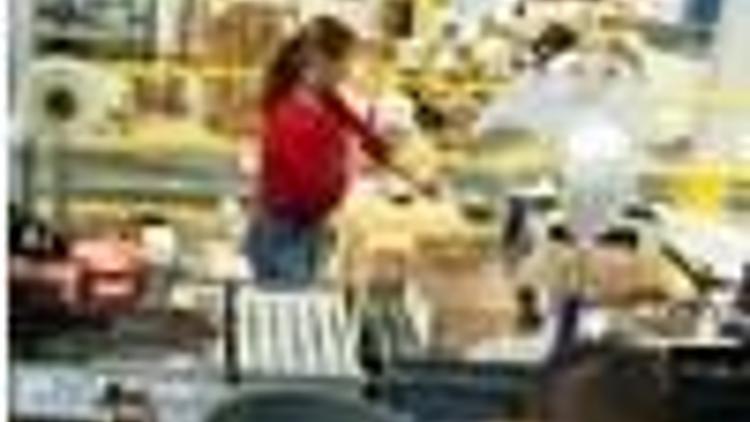German economy nearing danger zone, surveys show
Güncelleme Tarihi:

Germany's economic prospects were pounded twice on Tuesday, as new surveys raised fears of recession in Europe's biggest economy with signs of a much colder business climate and falling consumer confidence.
A monthly business climate index calculated by the Munich-based economic research institute Ifo fell to 94.8 points from 97.5 points in July, its lowest level since August 2005.
Household confidence as measured by the GfK institute fell to a five-year low meanwhile, as "subdued economic prospects and the expectation of additional price hikes continued to depress consumer sentiment."
The drop in Ifo's business climate survey was the third in a row, and its statement quoted president Hans-Werner Sinn as saying that
A sub-index that measures the current situation fell to 103.2 points from 105.6 in July, while expectations for the coming six months dropped from 89.9 to 87.0 points, a level not seen since a German recession in 1993.
The climate was cooler in the manufacturing, business and service sectors.
In manufacturing, survey participants forecast weaker support from crucial exports and expected to observe more caution in hiring.
The nation's economy contracted by 0.5 percent in the second quarter of 2008, and economists have raised the possibility it could fall into recession, as defined by two consecutive quarters of falling output.
The only bright spot in Ifo's data was in wholesaling, where the current situation was seen "as slightly positive and the outlook is assessed less critically."
But retail customers surveyed by GfK were affected by gloomy leading indicators, including previous Ifo polls, and "negative headlines regarding the still ongoing financial crisis."
GfK also said that "consumers are not interpreting the marked decrease in crude oil prices as an all-clear signal when it comes to purchasing power," because they face higher natural gas prices in the coming months.
At Capital Economics, economist Jennifer McKeown commented on the continued decline in the Ifo index by calling it "a worrying sign that the economy is slowing fast".
Andreas Rees at UniCredit Markets underscored that the Ifo general six-month outlook had posted its twelfth decline in the last 15 months and was now at its lowest level since February 1993.
UniCredit Markets put the probability of
UBS economist Martin Lueck tempered that view however, saying that recent free-fall in the Ifo index "looks more to us like a normalization following a period of exaggerated optimism rather than early signs of a deep and painful recession."
He said
At Citibank, analyst Juergen Michels noted that the drops, particularly in manufacturing, "suggest a further fall in euro area industrial confidence" despite modest gains reported in the
For Holger Schmieding at Bank of America, "with
Global Insight's Timo Klein expected the European Central Bank "to cut policy rates in 2009 in reaction to retreating inflation and concurrent evidence of economic weakness".
Schmieding added: "The bank may also have to explain again the rationale behind its July rate increase" to 4.25 percent.

